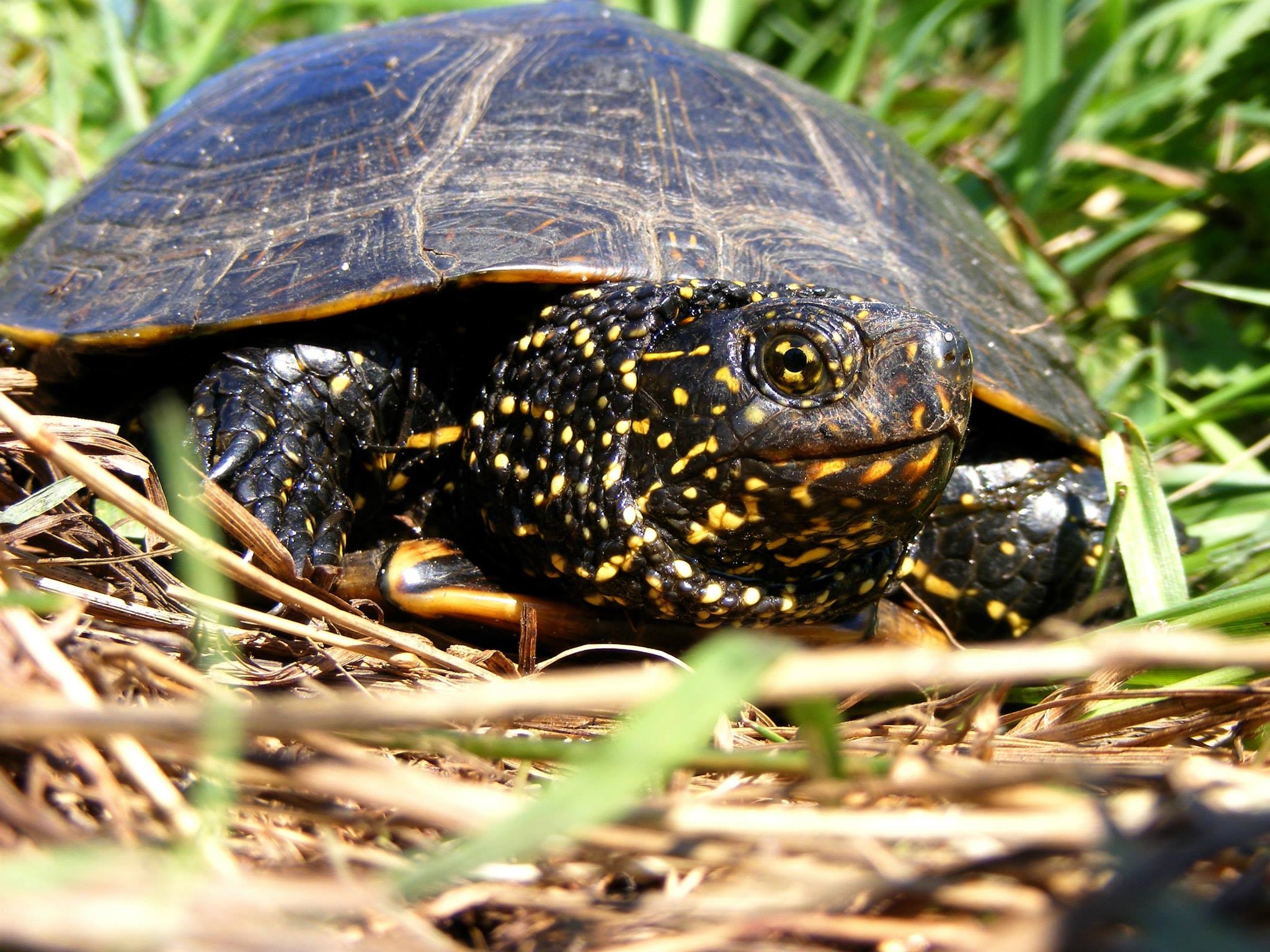Amphibians and reptiles

So far, in the Park, the occurrences of 13 species of amphibians have been reported. Both the rana and green frog occur here peculiarly profusely. We rank the moor frog among rana frogs, and in peculiar we often come across them in spring during the mating season in numerous overflow areas. Males of these frogs take on an intense light blue colour in spring time. Among the particularly rare and interesting species that can be found here includes the natterjack toad, and in the Park there are numerous common spadefoot toads, also called the garlic toad. Common spadefoot tadpoles can even grow up to 17 cm, which is a record amongst our amphibians.
Two species occur among newts: the smooth, and more rarely occurring, the great crested. In the mating period, males of these animals look peculiarly interesting, since they take on an intense colouring of the tail and they develop the characteristic crest on the back.
Seven species of reptiles are present in the Park. The European pond turtle, which is a relict in the country, is regarded as the most endangered reptile, deserves special attention. Its number in the Park is said to reach around 350-450 adults.
Among snakes that can be found are the common European viper, the grass snake, and the only recently discovered smooth snake. We can count three species among lizards: the sand lizard, the viviparous lizard and the legless slow worm. The viviparous lizard, due to its ability to give birth to fully developed young, could become independent from dry and warm places- essential for other lizards to lay and incubate eggs. The situation is similar to the case of common European viper.
Protected species of amphibians in PNP
|
Item Number |
Species name |
Species protection |
Red List of Threatened Animals in Poland |
Polish Red Data Book of Animals |
Natura 2000 |
||
|
English |
Latin |
Close |
Partial |
||||
|
1. |
Smooth newt |
Triturus vulgaris |
+ |
ô | ô | ô | ô |
|
2. |
Great crested newt |
Triturus cristatus |
+ |
ô |
NT |
NT |
+ |
|
3. |
European fire-bellied toad |
Bombina bombina |
+ |
ô |
DD |
ô |
+ |
|
4. |
Common spadefoot |
Pelobates fuscus |
+ |
ô | ô | ô | ô |
|
5. |
Common toad |
Bufo bufo |
+ |
ô | ô | ô | ô |
|
6. |
European green toad |
Bufo viridis |
+ |
ô | ô | ô | ô |
|
7. |
Natterjack toad |
Bufo calamita |
+ |
ô | ô | ô | ô |
|
8. |
European tree frog |
Hyla arborea |
+ |
ô | ô | ô | ô |
|
9. |
Common frog |
Rana temporaria |
+ |
ô | ô | ô | ô |
|
10. |
Moor frog |
Rana arvalis |
+ |
ô | ô | ô | ô |
|
11. |
Pool frog |
Rana lessonae |
+ |
ô | ô | ô | ô |
|
12. |
Marsh frog |
Rana ridibunda |
+ |
ô | ô | ô | ô |
|
13. |
Edible frog |
Rana esculenta |
+ |
ô | ô | ô | ô |
ô
Protected species of reptiles in PNP
|
Item number |
Species name |
Species protection |
Red List of Threatened Animals in Poland |
Polish Red Data Book of Animals |
Natura 2000 |
||
|
English |
Latin |
Close |
Partial |
||||
|
1. |
European pond turtle |
Emys orbicularis |
+ |
ô |
EN |
EN |
+ |
|
2. |
Sand lizard |
Lacerta agilis |
+ |
ô | ô | ô | ô |
|
3. |
Viviparous lizard |
Lacerta vivipara |
+ |
ô | ô | ô | ô |
|
4. |
Slow worm |
Anguis fragilis |
+ |
ô | ô | ô | ô |
|
5. |
Grass snake |
Natrix natrix |
+ |
ô | ô | ô | ô |
|
6. |
Common European viper |
Vipera berus |
+ |
ô | ô | ô | ô |
|
7. |
Smooth snake |
Coronella austriaca |
+ |
ô |
EN |
VU |
ô |



.jpg)










































